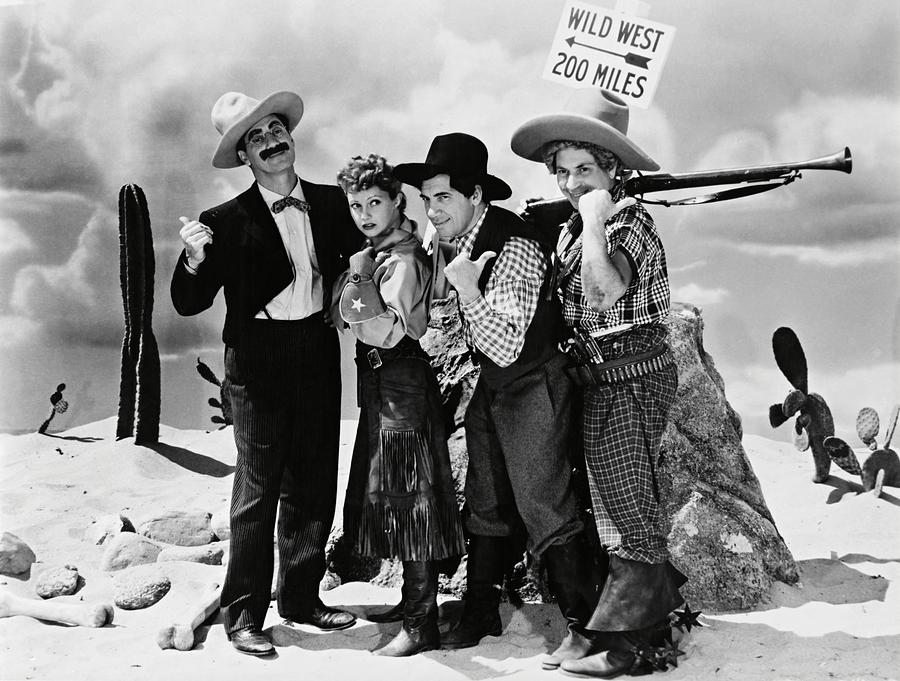

At the time - he was born in 1890 - it contained a lower-class neighborhood of new Americans speaking amalgams of English and their mother tongues, an environment in which language-play came naturally. Along with Harpo (real name, Adolph), Chico (Leonard) and two other brothers little remembered today, Groucho (Julius) grew up on the Upper East Side of Manhattan before it became posh. Siegel is also good at linking Groucho’s performing style with his upbringing. Compare Bartleby’s refrain “I would prefer not to” to Groucho’s “Whatever it is, I’m against it.” It is the spectacle of seeing something so uncivilized and natural that it has all the appearance of a freakish exception to human nature.” Later, he makes a surprising and shrewd connection between Groucho’s trashing of social customs and the refusals of Bartleby the Scrivener in Melville’s great story. “Groucho’s dark, compulsive assault not just on propriety but on the basic premises of social life is what makes the Marx Brothers’ movies so strange, and so original. And that’s not saying much for you.” Or innocent characters get teased and physically abused, like the lemonade vendor in “Duck Soup.” Siegel sums up this offensiveness as embodied in the brothers’ ringleader and spokesman: Rittenhouse in “Animal Crackers,” “You’re one of the most beautiful women I’ve ever seen. In the dizzying world according to Marx, commonplace formulas get upended or canceled out, as when Groucho says to Mrs. “The Marx Brothers exist in a prolonged spasm of destruction,” he writes, “something on the order of rapture, frenzy, or divine madness.” (Although Siegel doesn’t mention this, the brothers’ anarchy may have inspired the revival of their popularity in the rebellious 1960s.) In fact, Siegel argues in what he calls his “biocommentary” on Groucho that the brothers often seemed to aim at something other than laughs, serving up not wit or slapstick but repudiations of authority, convention and common sense. Perelman by Becky Karush at her blog.If you find the Marx Brothers unfailingly funny, Lee Siegel is not your man. The interested reader may want to read a more in-depth and thoroughly engaging profile of S.J. Perelman hated Hollywood, but stayed around long enough to work on the script for Horse Feathers, for which he, along with Harry Ruby and Bert Kalmar, did receive screen credit when it was released in 1932.Īfter he left Hollywood, Perelman resented the fact that much of of his reputation was based on his relatively brief association with the Marx Brothers, of whom he said, "I did two films with them, which in its way is perhaps my greatest distinction in life, because anybody who ever worked on any picture for the Marx Brothers said he would rather be chained to a galley oar and lashed at ten-minute intervals until the blood spurted from his frame than ever work for those sons of bitches again." Even though Perelman was uncredited, undoubtedly some of his material remained in the script. When Monkey Business was released in 1931, Arthur Sheekman received credit for the screenplay. Over the ensuing months, with the input of the brothers and other writers, an acceptable script for Monkey Business was produced. After he finished, Groucho said (depending on which version of the story you believe) either, "It stinks," or "I think we need a script."

Make sure you wear asbestos pants." Mankiewicz' words came true when Perelman read the completed script to the Marx Brothers. I hate to depress you, but you'll rue the day you ever took the assignment. Mankiewicz told Perelman that the Marx Brothers were "mercurial, devious, and ungrateful. When Perelman arrived in Hollywood from New York, producer Herman J. Groucho liked the idea so much, he convinced Paramount Pictures to hire Perelman and Johnstone to write the next Marx Brothers movie. The writers came up with the idea of the Marx Brothers as stowaways on a luxury oceanliner. Johnstone, who had written the Marx Brothers' stage show I'll Say She Is. Some day, I intend reading it." Groucho subsequently asked Perelman to work on a radio script for the Marx Brothers. Groucho was a fan of Perelman's prose, including his first book, Dawn Ginsbergh's Revenge, of which Groucho wrote, "From the moment I picked up your book until I put it down, I was convulsed with laughter. His relationship with the Marx Brothers in general, and Groucho in particular, was a stormy one. Perelman, whom I featured in an earlier post, was a brilliant humorist.


 0 kommentar(er)
0 kommentar(er)
